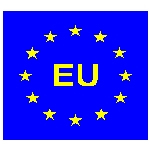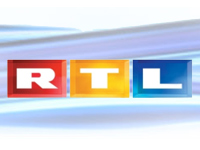 The words European and Commission, when used together rarely equate to clarity. This is holding true with the mixed signals on the financial support that will be permitted in the transition to Digital TV across Europe.
The words European and Commission, when used together rarely equate to clarity. This is holding true with the mixed signals on the financial support that will be permitted in the transition to Digital TV across Europe.
Last week the EU ministers of Transport, Energy and Telecommunications met. They agreed on the need to accelerate the switchover, and a 2012 deadline for the move from analogue to Digital TV. Currently ten member states are expected to complete the switchover by 2010.
But this push to digital comes somewhat bizarrely against the background of a recent European Commission ruling. It subsidies the commercial broadcasters in Germany use of the digital terrestrial television (DVB-T) network, violating EC Treaty state aid rules. Subsidies valued at close to €4 million were granted to the German Land of Berlin-Brandenburg, with beneficiaries that included German broadcasters RTL and ProSiebenSat.1. The commission says they are illegal and the sums already paid (around €2 million) should be returned.
 The Commission made clear that it supports the transition to digital broadcasting, and that Member States have a variety of methods to assist the digital switchover, that fits in with EC Treaty state aid rules.
The Commission made clear that it supports the transition to digital broadcasting, and that Member States have a variety of methods to assist the digital switchover, that fits in with EC Treaty state aid rules.
Neelie Kroes the Competition Commissioner said, “The Commission is firmly committed to encouraging the transition to digital TV, which has many advantages for consumers and innovation. However, state support must be based on objective criteria, address specific issues where the market does not provide solutions and avoid distortions of competition, particularly between terrestrial, cable and satellite platforms.”
The single market in Digital TV would facilitate the economies of scale for both ‘head-end equipment’ (the digital gizmos that transmit the TV services) and domestic set top box makers that include European giants, like Pace and Phillips.
 Europe could benefit economically and socially, by a concerted approach across Europe to the ‘liberated’ spectrum. The EC wants to see trading in radio wavebands (much championed by the UK regulator OFCOM) and believes that this could assist European firms in launching innovative products and services. A study commissioned by the executive indicated that the move to Digital would have potential benefits of around EUR 9 billion for community members through greater efficiencies.
Europe could benefit economically and socially, by a concerted approach across Europe to the ‘liberated’ spectrum. The EC wants to see trading in radio wavebands (much championed by the UK regulator OFCOM) and believes that this could assist European firms in launching innovative products and services. A study commissioned by the executive indicated that the move to Digital would have potential benefits of around EUR 9 billion for community members through greater efficiencies.
Let’s hope that European bureaucrats can get their act together on this one.